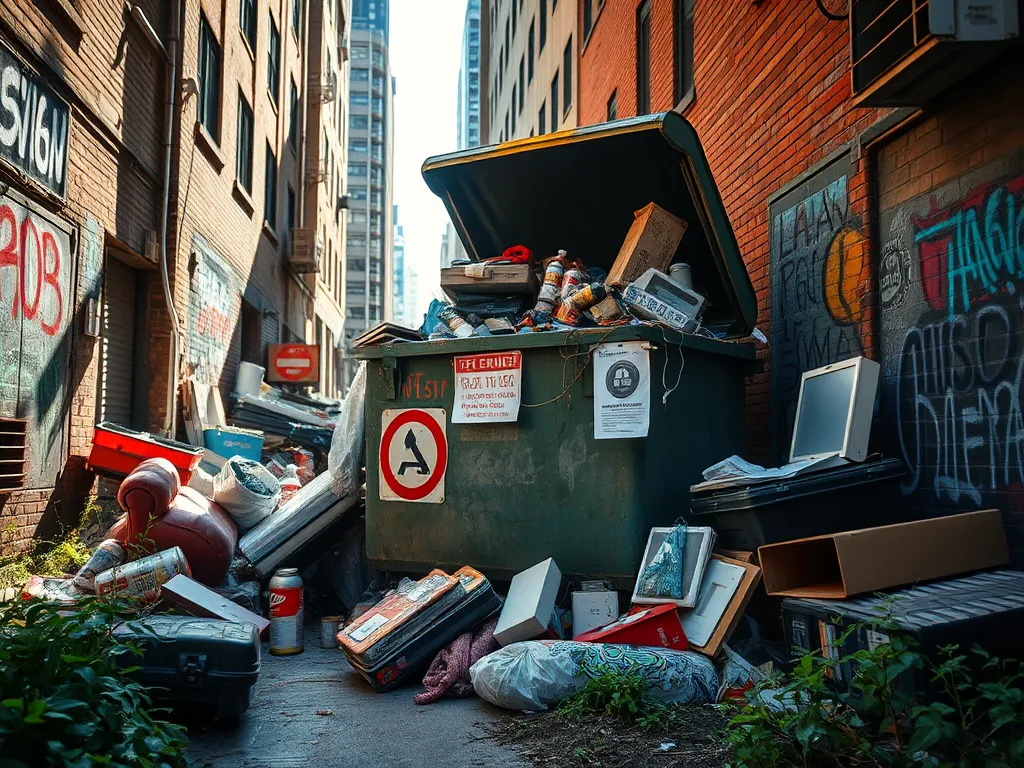Essential Guide to Prohibited Dumpster Items: What Not to Toss

Waste Management: Strategies and Practices for a Sustainable Future
Waste Management is an essential practice that involves the collection, transport, processing, and disposal of waste materials. It is critical for maintaining public health, safeguarding the environment, and conserving valuable resources. Effectively managing waste minimizes its negative impacts, ultimately promoting a safer and cleaner community.
The importance of Waste Management cannot be understated. As urbanization and industrialization continue to rise, the volume of waste generated is increasing dramatically. Proper Waste Management practices not only reduce pollution but also prevent the spread of diseases related to waste accumulation. Additionally, it plays a significant role in recycling and recovering materials, thereby supporting sustainable practices.
Understanding the regulations set by CDPHE can significantly impact waste management practices in Colorado.
Various methods are employed in Waste Management, including recycling, composting, incineration, and landfilling. Recycling allows for the reuse of materials, while composting transforms organic waste into nutrient-rich soil. Incineration helps in reducing waste volume but needs to be managed to control emissions. Landfilling, though widely used, requires careful planning to prevent environmental hazards from leachate and methane production.
To ensure effective Waste Management, communities must adhere to regulations and guidelines that govern waste disposal. Public education and awareness are also vital components as they foster responsible waste handling behavior among individuals. Local governments often collaborate with organizations to promote waste reduction initiatives, thus creating a culture of sustainability.
In summary, Waste Management is crucial for creating a healthy environment and conserving natural resources. By implementing robust Waste Management practices, society can manage waste responsibly, protect public health, and work towards environmental sustainability.
Common Prohibited Items in Dumpsters
Some common prohibited items include household hazardous waste such as batteries, pesticides, and paints. These substances require special handling due to their toxicity and potential to contaminate soil and water when disposed of improperly.
Appliances and electronics are also often prohibited from standard dumpster disposal. Items like refrigerators, televisions, and computers contain materials that can be harmful to the environment if not recycled through specialized facilities.
Construction debris and materials, including concrete, bricks, and metals, are generally not allowed in regular dumpsters. Specific disposal methods must be used to ensure these materials are recycled or repurposed appropriately.
Toxic substances, including chemicals and fuels, should never be placed in dumpsters. These items pose significant environmental hazards and require specialized disposal methods to mitigate their risks.
Medical waste, including sharps and pharmaceutical waste, is strictly regulated and must be disposed of through designated medical waste disposal services to prevent public health risks.
Consequences of Disposal Violations
Failure to adhere to proper waste disposal regulations can result in fines and penalties. Violators may face hefty charges that can vary based on the severity and frequency of the violation.
Improper disposal can lead to environmental hazards, including soil and water contamination. Hazardous waste can seep into the ground and waterways, posing risks to ecosystems and human health.
Disposal violations also impact waste management facilities, leading to increased operational costs and potential shutdowns. Facilities may face more stringent regulations and increased oversight due to non-compliance in the community.
Legal repercussions can arise for individuals or businesses that dispose of waste improperly, leading to lawsuits or criminal charges in severe cases. This can result in a permanent mark on one's record and higher insurance premiums.
Community safety issues can arise from improper disposal practices. Hazardous waste in public areas can result in injuries, environmental degradation, and a decline in community well-being.
Alternatives to Disposing Prohibited Items
Instead of disposing of prohibited items in dumpsters, individuals should seek specialized disposal facilities designed to handle hazardous waste properly and safely. These facilities are equipped to process such items and mitigate risks.
Recycling options are available for many materials that would otherwise be considered waste. Individuals can participate in local recycling programs to ensure that materials are reused and do not end up in landfills.
Donation centers often accept gently used appliances and electronics, contributing to community welfare and reducing landfill waste. Donating usable items supports sustainability efforts and helps those in need.
Community collection events provide an opportunity for residents to safely dispose of prohibited items. These events are usually organized by local governments to encourage safe disposal practices and recycling efforts.
Waste reduction strategies, such as composting and waste auditing, can significantly minimize the amount of waste produced. By adopting these practices, individuals and communities can lower their waste output.
Best Practices for Waste Disposal
Identifying prohibited items is the first step in responsible waste disposal. Familiarizing oneself with local regulations can help avoid unintentional violations.
Proper sorting techniques ensure that waste is separated into recyclables, compostables, and trash. This practice promotes efficient recycling and waste management processes.
Understanding local regulations regarding waste disposal is essential for compliance. Residents should stay informed about changes and updates to these regulations.
Engaging with waste management services can provide individuals with valuable information and resources for effective waste disposal. Open communication helps in building a culture of responsibility.
Educating community members about waste management practices fosters a community-wide commitment to sustainability. Workshops and campaigns can raise awareness and promote responsible waste behaviors.
Tips for Safe Disposal of Specific Items
For electronics, seek out designated e-waste recycling centers that specialize in safely processing these items to prevent environmental harm and recover valuable materials.
Managing hazardous materials requires following local disposal guidelines and utilizing drop-off services provided by municipalities or specialized waste management facilities.
Disposal of expired medicines should be done through 'take-back' programs, which allow individuals to return unused medications to pharmacies for safe disposal.
Environmentally-friendly ways to get rid of appliances include scheduling pickups with retailers that offer recycling services or finding local scrap metal recyclers.
Best practices for handling construction debris involve hiring licensed disposal services that specialize in construction waste management to ensure proper disposal and recycling.
